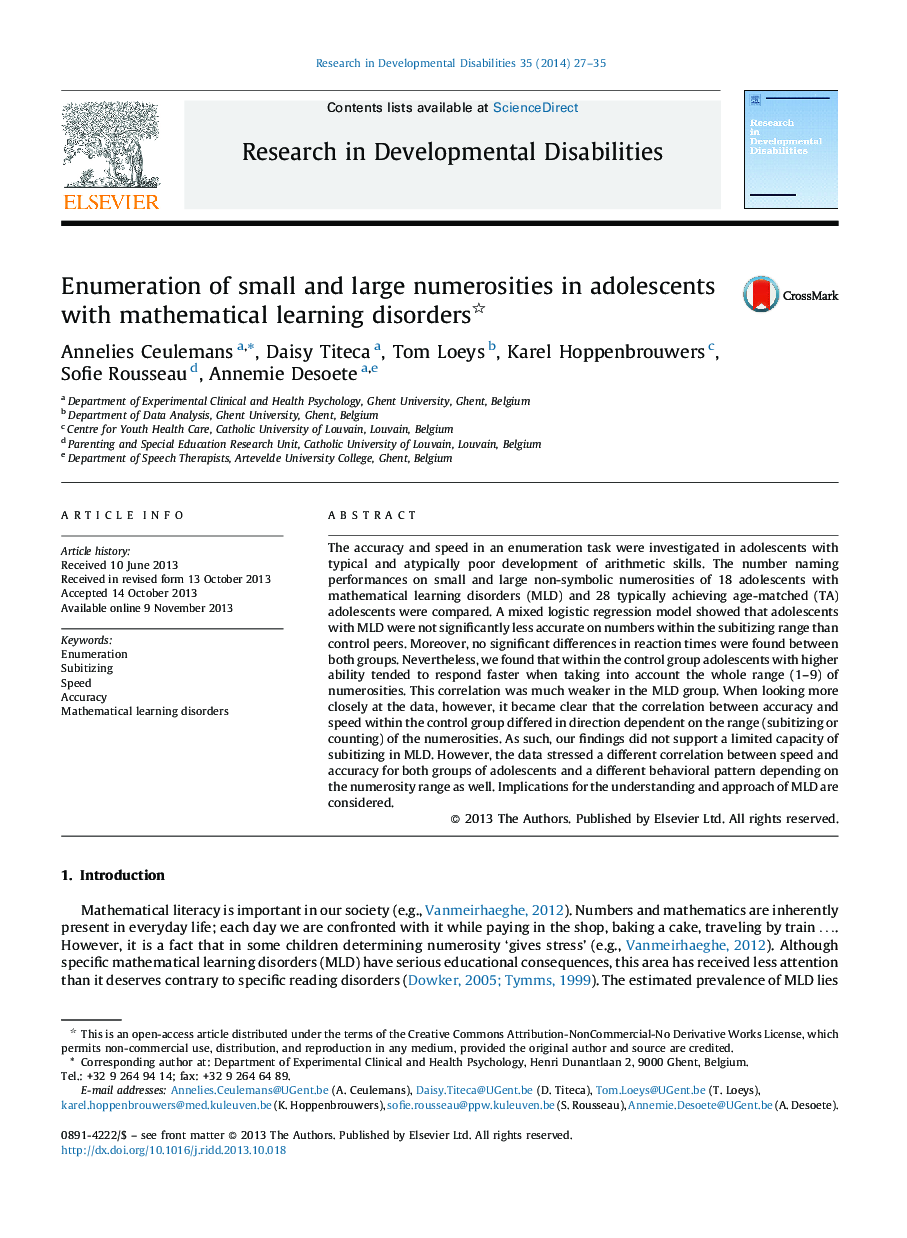| Article ID | Journal | Published Year | Pages | File Type |
|---|---|---|---|---|
| 10317499 | Research in Developmental Disabilities | 2014 | 9 Pages |
Abstract
The accuracy and speed in an enumeration task were investigated in adolescents with typical and atypically poor development of arithmetic skills. The number naming performances on small and large non-symbolic numerosities of 18 adolescents with mathematical learning disorders (MLD) and 28 typically achieving age-matched (TA) adolescents were compared. A mixed logistic regression model showed that adolescents with MLD were not significantly less accurate on numbers within the subitizing range than control peers. Moreover, no significant differences in reaction times were found between both groups. Nevertheless, we found that within the control group adolescents with higher ability tended to respond faster when taking into account the whole range (1-9) of numerosities. This correlation was much weaker in the MLD group. When looking more closely at the data, however, it became clear that the correlation between accuracy and speed within the control group differed in direction dependent on the range (subitizing or counting) of the numerosities. As such, our findings did not support a limited capacity of subitizing in MLD. However, the data stressed a different correlation between speed and accuracy for both groups of adolescents and a different behavioral pattern depending on the numerosity range as well. Implications for the understanding and approach of MLD are considered.
Keywords
Related Topics
Life Sciences
Neuroscience
Behavioral Neuroscience
Authors
Annelies Ceulemans, Daisy Titeca, Tom Loeys, Karel Hoppenbrouwers, Sofie Rousseau, Annemie Desoete,
